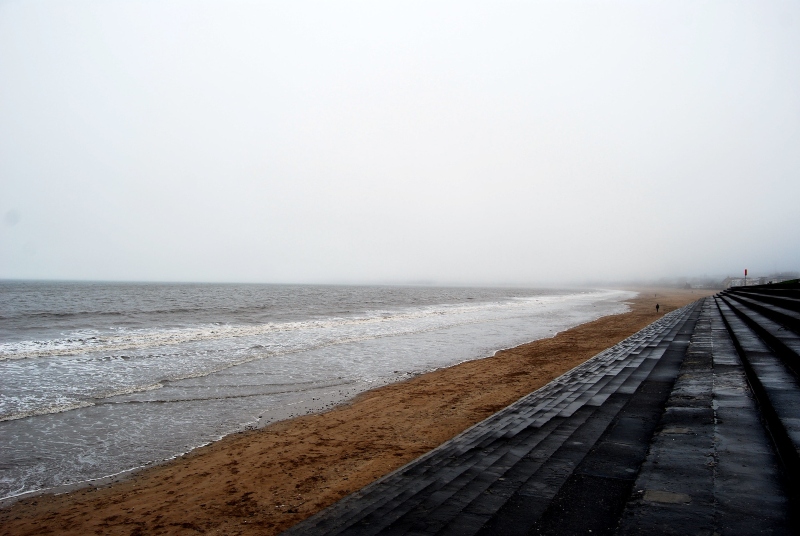Justice and the coastlands waiting for law
Baptists in Swansea are increasingly partnering a law clinic which offers free advice. Minister Chris Lewis takes up the story

“An ugly, lovely town ... crawling, sprawling ... by the side of a long and splendid curving shore. This sea-town was my world,” wrote Dylan Thomas. Well, it’s the City and County of Swansea now, a lot bigger and a lot greener than in his day. I can stand at the back of our house and look out over that shore curving east round to Port Talbot and beyond. It is my home and when I was away from it I missed the sea.
A coastland it is, yes, literally. In the Bible ‘coastlands’ is used in the sense of a literal coastland but also a metaphor for the places that are marginal, not much regarded, far off. There’s something of this about where I live, a village on the extreme eastern edge of Swansea, beautiful but also an area of significant post-industrial deprivation. One of the so-called ‘Servant Poems’ of Isaiah reads, ‘He will not fail or be discouraged till he has established justice in the earth; and the coastlands wait for his law.’ It’s the sort of text that we might read in Advent, at a pre Christmas carol service in the expectation of Christmas.
How do churches and their leaders respond? Well, the answer is with a ‘servant’ pattern of ministry, making the church a place of help. It’s true of our little chapel, for example: we have a foodbank; through partners, a route to debt and benefit advice, support with mental health; a community performing arts group that puts on plays, pantomimes and performs for care homes; a friendship group seems to be morphing into a sort of self reliant group; then the local branch of the National Autistic Society will be taking over a garden we set up at the back. Our Church in Wales neighbours in the next parish, having more space and facilities than we, can do things on a bigger scale.
But what of ‘justice ‘ and ‘law’ in situations? Are they the sort of thing that in Augustine’s language that are ‘intelligible’, ideal concepts to which we aspire, something in a far off future? Can they be made ‘sensible’, part of the experience that we live here and now?
As a member of the community, the minister of the chapel, a workplace chaplain, I don’t have to turn over many stones to find people who need access to justice, in matters of housing, relationship breakdown such as cases of divorce, and child contact, employment, equality, consumer issues and welfare benefits. How can I help?
 This is where the Swansea University Law Clinic came to my aid. Law Clinic is not a legal practice but it is a source of advice. It’s not a panacea, nor would its Director, Professor Richard Owen, claim it to be. There are things that it can do, such as representation work in the Social Entitlement Chamber and Employment Tribunals. It cannot do representation work in other tribunals or courts but it can advise people who find that they have to be litigants in person. They don’t write wills or take on criminal cases, but they are involved in a miscarriage of justice project.
This is where the Swansea University Law Clinic came to my aid. Law Clinic is not a legal practice but it is a source of advice. It’s not a panacea, nor would its Director, Professor Richard Owen, claim it to be. There are things that it can do, such as representation work in the Social Entitlement Chamber and Employment Tribunals. It cannot do representation work in other tribunals or courts but it can advise people who find that they have to be litigants in person. They don’t write wills or take on criminal cases, but they are involved in a miscarriage of justice project.
As a church we have become increasingly involved: we have referred people in their direction, and I have encouraged both students and solicitors to volunteer for it.
Professor Owen speaks of a movement that began in the USA, called ‘Rebellious Lawyers’ as the inspiration for what he doing here. By inviting law students to volunteer and practising solicitors to supervise them to give a free service he is unlocking good will (another Christmas trope) bridging a social and economic divide. With this help we begin to bring law and justice to the coastlands, to people to whom it’s denied because they can’t pay.
Image | A view by Swansea Civic Centre at high tide
Chris Jobling | Flickr | Creative Commons
The Revd Chris Lewis is the East Swansea Community Chaplain, a ministry supported by Home Mission. He's the minister of Mount Zion Baptist Chapel in Bonymaen, and chairs The Swansea East Side Food Bank, which is based in the church.
Baptist Times, 12/11/2019